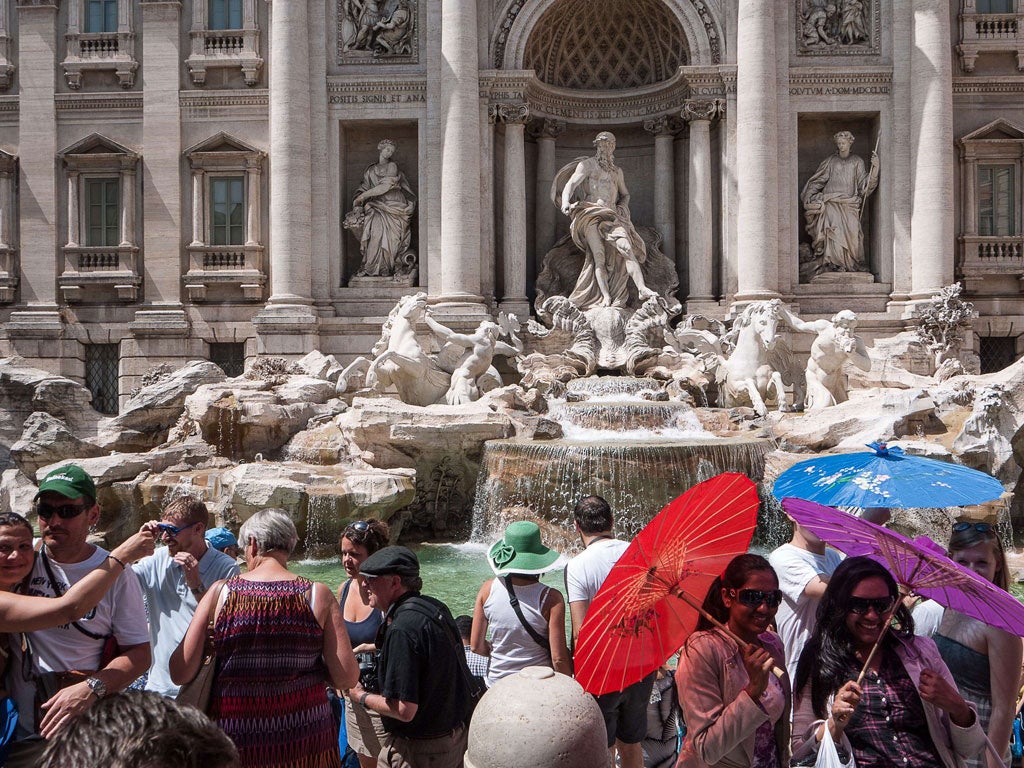Inside Travel: Be a tourist, not a target
How can you cut the risk of falling victim to crime abroad? Simon Calder has some advice.

Before you go
Tens of millions of British holidaymakers book trips online – but a few thousand are left with nothing but a big dent in their finances. Before you type in your financial details to pay for flights or accommodation, satisfy yourself that you are dealing with a bona fide trader. If anyone asks you to send money by bank transfer, alarms should sound. Do not send money unless you are absolutely certain about the trustworthiness of the recipient. Bank transfers are irreversible. If the deal turns out to be a scam – for example, the villa you thought you had booked does not exist – you have no comeback. Other payment methods, such as credit or debit cards, allow for appeals.
Bags are packed, ready to leave ...
Careful how you label your luggage. One popular trick among burglars is to go to airports and study the labels attached to passengers' baggage – either memorising the home address, or taking a mobile-phone picture of the details. It's a fair bet the holidaymakers' home will be empty for a week or two. So, don't reveal any personal details beyond your name, mobile phone number (prefixed +44, in case a baggage office needs to call you), and an email address. Put the same details inside the bag – nothing to do with preventing crime, but simply to increase the chances of reuniting you with your possessions if they stray.
Think before you tweet
"I'm at the airport #onhols" – I follow a number of UK airports on Twitter to learn of any problems with weather or strikes, and I'm amazed by how many people tweet something like: "At the departure gate, can't wait to get to Turkey for a fortnight." Ditto, tweets such as this one from last weekend: "Lovely day 2day in Ibiza." It took me about two minutes to find out a great deal about the tweeter. You might as well send an email to your local burglar saying how long you expect to be away, and invite them to find out more about you on your Facebook page.
Just arrived. Who are those odd men?
No, not the pilots – the scrum of chaps hanging around the arrivals area. You are at your most vulnerable when you have just arrived somewhere new. Tired, confused and out of your comfort zone, you have to sort out the next step of your journey tickets or transfers. That makes you a tempting target for villains.
Plan ahead: get an up-to-date guidebook to scope out the next stage of your journey. If you can book in advance and print out your onward tickets, so much the better. Have some local currency to hand so as not to reveal where the bulk of your funds are stashed. However weary you may feel, stay alert to what's happening around you . At railway stations, airports and on airport trains, keep your eyes on your luggage: the lines from Amsterdam Schiphol and Paris Charles de Gaulle are notorious for thefts. If you feel you are getting caught up in a crowd, step away.
When sightseeing, don't lose focus
Pickpockets, bag snatchers and scam artists are as fond of busy tourist attractions as they are of transport terminals. Rome, Florence, Prague, Barcelona and Seville are prime crime territory. Again, be aware when crowds form around you, whether of young children or large men. If anything unusual happens – eg a woman claiming to have found a wedding ring, or a man who "finds" a wallet and seeks your help – be immediately suspicious. This usually marks the beginning of an elaborate and often expensive scam.
Hotel heists
Many hotels have an open-door policy that enables people to walk in unchallenged off the streets. Be careful of people milling about at the front desk, possibly eyeing up your luggage. If anyone knocks on your hotel-room door, call reception to check he or she is a legitimate employee before letting them in. In general, small, family-run hotels tend to be better protected against crime than big, anonymous properties.
Stay on the right side of the law
Breaking the law abroad is easier than you might think. Ramadan, the Islamic month of fasting, begins next weekend and, even in relaxed Dubai, the Foreign Office warns: "Do not eat, drink or smoke in public view during the day (including in your car). This is considered highly disrespectful. It is also against the law and failure to comply could result in arrest." Elsewhere, drunkenness that might be seen as good natured here could earn you a stay in a cell in Poland – and you'll be presented with a bill the next morning for your "care". Carrying ID is often obligatory – though a photocopy of the business pages of your passport will usually suffice. Finally, be careful where you take photos. The new UAE bulletin from the FO warns: "Hobbies that involve cameras and binoculars, such as bird watching and plane spotting, may be misunderstood – particularly near military sites, government buildings and airports".
Mugged on a tram...
"I've just returned from Lisbon. I travel once a month so am aware of pickpockets. We took the popular 28 historic tram and my mother-in-law was robbed. I noticed a man acting suspiciously and moved away. A second man asked me to press the bell while the first emptied her purse. Once they disembarked I found the purse minus the money. On my return, I Googled "Lisbon pickpockets" and found at least three videos of these men robbing people. Tourists innocently board quaint trams and are exposed to gangs. I cannot let defenceless people get robbed. Please highlight this problem.
Kath McCann
Join our commenting forum
Join thought-provoking conversations, follow other Independent readers and see their replies
Comments
Bookmark popover
Removed from bookmarks